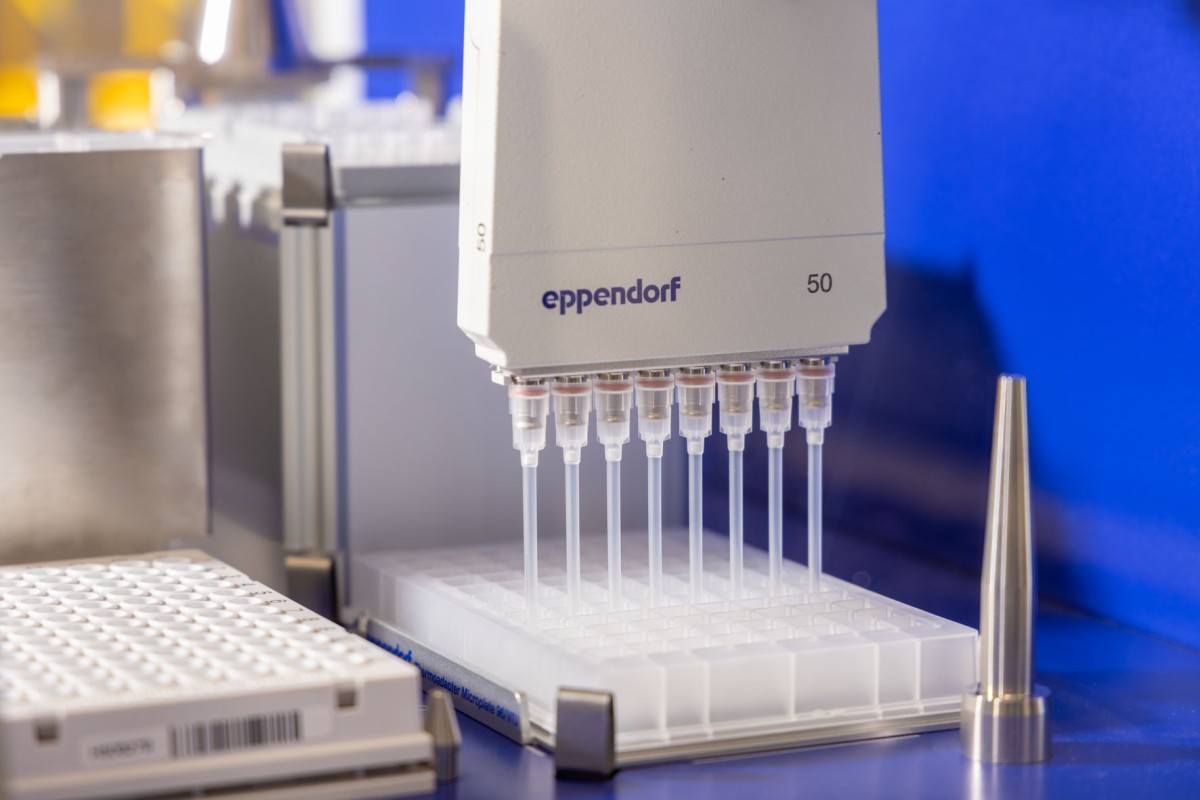The Netherlands
December 17, 2024
Vanaf 1 januari 2025 wijzigen we onze virustoetsingsmethoden voor Broad bean wilt virus 1 en 2 (BBWV1/2), Prunus necrotic ringspot virus (PNRSV) en Strawberry latent ringspot virus (SLRSV). We voeren deze toetsen voortaan met de PCR-methode uit. Met PCR zijn we goed in staat om de brede variatie in isolaten te dekken.

Real-time PCR vermeerdert DNA op een snelle manier
Dit gebeurt met behulp van pathogeenspecifieke bouwstenen. De toename van het DNA kan op elk moment digitaal gevolgd worden. Hierdoor is het mogelijk om sneller en met meer zekerheid te bevestigen of in (verdacht) plantmateriaal daadwerkelijk het pathogeen aanwezig is.
Virussen
SLRSV
Dit virus zorgt op het noordelijk halfrond voor problemen in bijvoorbeeld vollegrondsgewassen. In diverse landen wordt het beschouwd als een quarantaine-organisme. Het virus wordt overgedragen door nematoden en kan in sommige gewassen zaadoverdraagbaar zijn. Als gewassen vegetatief vermeerderd worden, blijft het virus aanwezig.
BBWV1/2
De virussen BBWV1 en 2 komen wereldwijd voor in een breed scala aan gewassen. Deze virussen worden verspreid door meerdere soorten bladluizen.
PNRSV
PNRSV kan onder andere chlorotisch vlekken / kringen en hagelschot veroorzaken in Prunus-soorten, maar ook symptomen veroorzaken in roos (Rosa spp., één van de veroorzakers van rozenmozaïek) en hop (Humulus lupulus). PNRSV wordt wereldwijd aangetroffen vanwege de gemakkelijke overdracht via plantvermeerderingsmethoden en besmet zaad.
BBWV, PNRSV en SLRSV op plantmateriaal
- Monster: maximaal 2; 10 of 25 blad(stukjes)
- Tarief toets: respectievelijk € 9,20; € 17,70 en € 48,90
- Duur toets: 4 dagen
Voor basisbedragen zie tarievenlijst Laboratoria.
Naktuinbouw Laboratoria ondersteunt sector
Naktuinbouw Laboratoria blijft om de sector te ondersteunen nieuwe toetsen ontwikkelen. Die toetsen kunnen ondersteunen voor diagnoses op planten met symptomen of juist het controleren op en garanderen van afwezigheid van bepaalde plantpathogenen.
BBWV, PNRSV and SLRSV tested by PCR from 2025 onwards
From 1 January 2025, we will change our virus testing methods for Broad bean wilt virus 1 and 2 (BBWV1/2), Prunus necrotic ringspot virus (PNRSV) and Strawberry latent ringspot virus (SLRSV). We will conduct these tests from now on using the PCR method. With PCR, we are well able to cover the wide variation in isolates.

The real-time PCR is a technique to rapidly propagate DNA
This is done using pathogen-specific building blocks. The increase in DNA can be digitally monitored at any time. This makes it possible to confirm faster and with more certainty whether the pathogen is actually present in (suspected) plant material.
Viruses
SLRSV
This virus causes problems in the northern hemisphere in e.g. outdoor crops. In several countries, it is considered a quarantine organism. The virus is transmitted by nematodes and can be seed-borne in some crops. If crops are vegetatively propagated, the virus remains present.
BBWV1/2
The viruses BBWV1 and 2, occur worldwide in a wide range of crops. These viruses are spread by multiple species of aphids.
PNRSV
PNRSV can cause chlorotic spotting/circulation and hail shot in Prunus species, among others, but also cause symptoms in rose (Rosa spp., one of the causal agents of rose mosaic) and hops (Humulus lupulus). PNRSV is found worldwide because of its easy transmission through plant propagation methods and infected seed.
BBWV, PNRSV and SLRSV on plant material
- Sample: maximum 2, 10 or 25 leaf(pieces)
- Fee test: € 9,20, € 17,70 and € 48,90 respectively
- Duration of test: 4 days
For basic amounts see price list Laboratories.
Naktuinbouw Laboratories support sector
To support the sector, Naktuinbouw Laboratories continues to develop new tests. Those tests can support diagnoses on plants with symptoms or just checking for and guaranteeing the absence of certain plant pathogens.